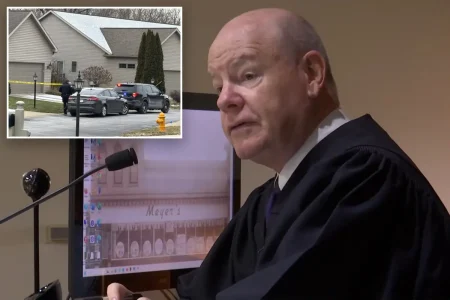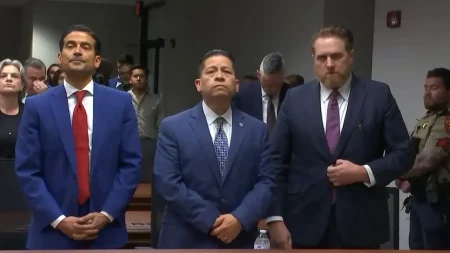Justice Mary Rosado Questions Order Following NYC Mayor’s Corruption Case Dismissal
In a notable judicial development, Justice Mary V. Rosado has raised concerns about a court order issued in the aftermath of dropped corruption charges against New York City’s mayor. According to Justice Rosado, the timing and circumstances of this order—which came after the Trump administration’s decision to abandon the prosecution—created the appearance of a conflict of interest. While the specifics of the order remain unclear from the limited information provided, Justice Rosado’s comments highlight the importance of maintaining not just actual judicial impartiality, but also the public’s perception of fair proceedings.
The situation appears to touch on the delicate relationship between political administration changes and ongoing legal matters. When the Trump administration decided to drop corruption charges that had been brought against the mayor, it created a context in which subsequent legal actions might be viewed through a political lens. Justice Rosado’s concern suggests that the judicial order in question may have lacked sufficient separation from the political decision to abandon the case, potentially undermining public confidence in the independence of the judicial process.
Conflicts of interest, whether actual or perceived, present significant challenges to the integrity of the legal system. Justice Rosado’s statement reflects the legal principle that justice must not only be done but must be seen to be done. Even in the absence of actual impropriety, the mere appearance of a conflict can damage trust in judicial institutions and processes. This principle becomes particularly important in high-profile cases involving elected officials, where public scrutiny is intense and the potential for political interpretations of legal decisions is heightened.
The timing of these events adds another layer of complexity to the situation. Court orders following the dismissal of politically sensitive cases inevitably face additional scrutiny, as they may appear to either validate or challenge the decision to drop charges. Justice Rosado appears to be highlighting this temporal relationship as problematic, suggesting that greater care should have been taken to ensure that the order was—and appeared to be—completely independent of the political decision-making that led to the case’s dismissal.
This scenario illustrates the ongoing challenges faced by the judiciary in maintaining its independence while operating within a political environment. Judges must constantly balance adherence to the law with awareness of how their actions might be perceived in politically charged contexts. Justice Rosado’s willingness to publicly identify a potential appearance of conflict demonstrates the self-reflective nature that helps preserve judicial integrity, even when doing so might create institutional tension.
The concerns raised by Justice Rosado serve as a reminder of the fundamental importance of maintaining clear boundaries between political decisions and judicial processes. As public trust in institutions faces ongoing challenges, the judiciary’s commitment to avoiding even the appearance of impropriety becomes increasingly vital. While the full details and implications of this specific order remain to be seen, Justice Rosado’s statement highlights the continuing vigilance required to maintain both the reality and perception of an independent judiciary, particularly in cases involving powerful political figures and decisions made by changing administrations.







